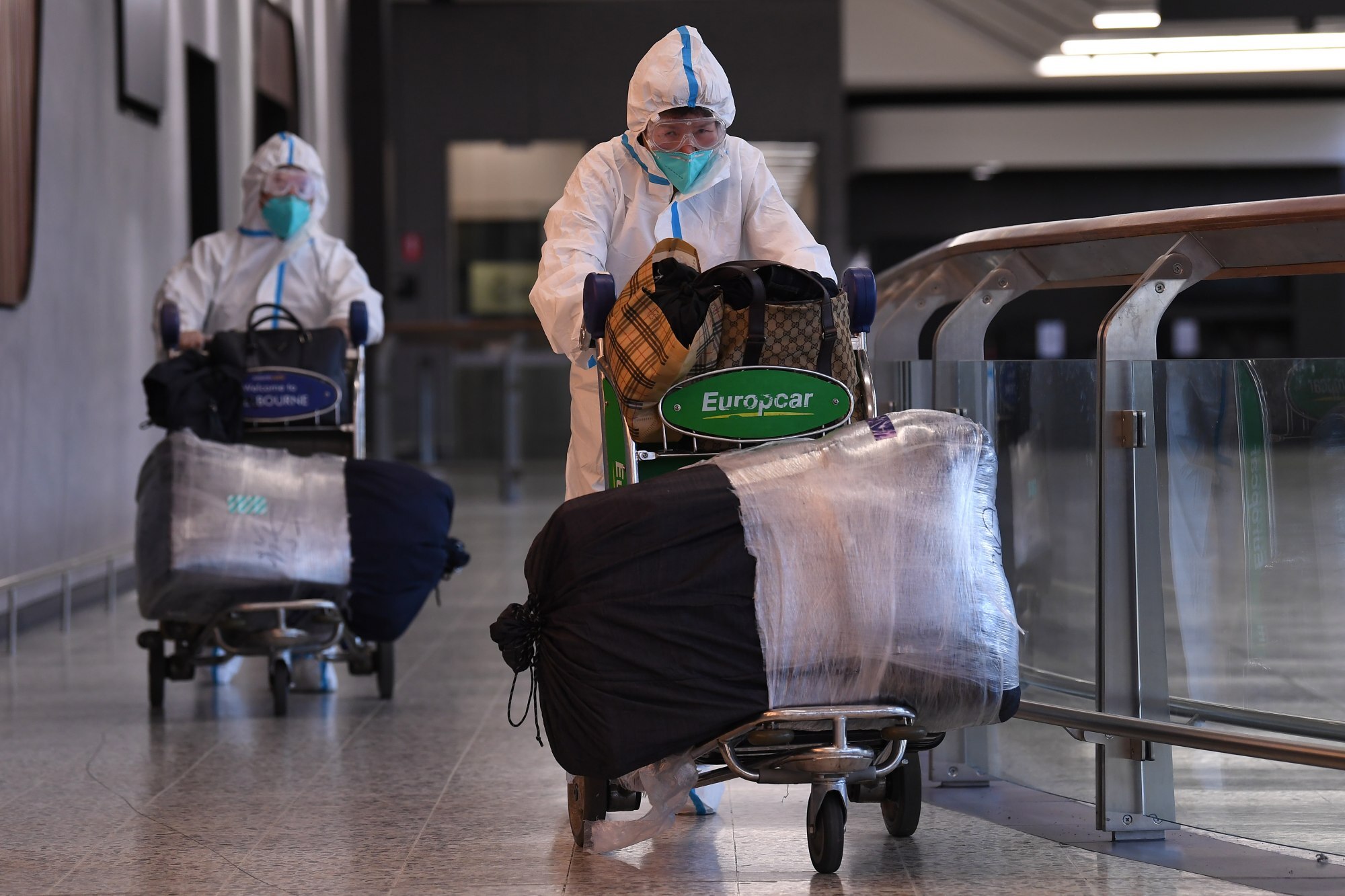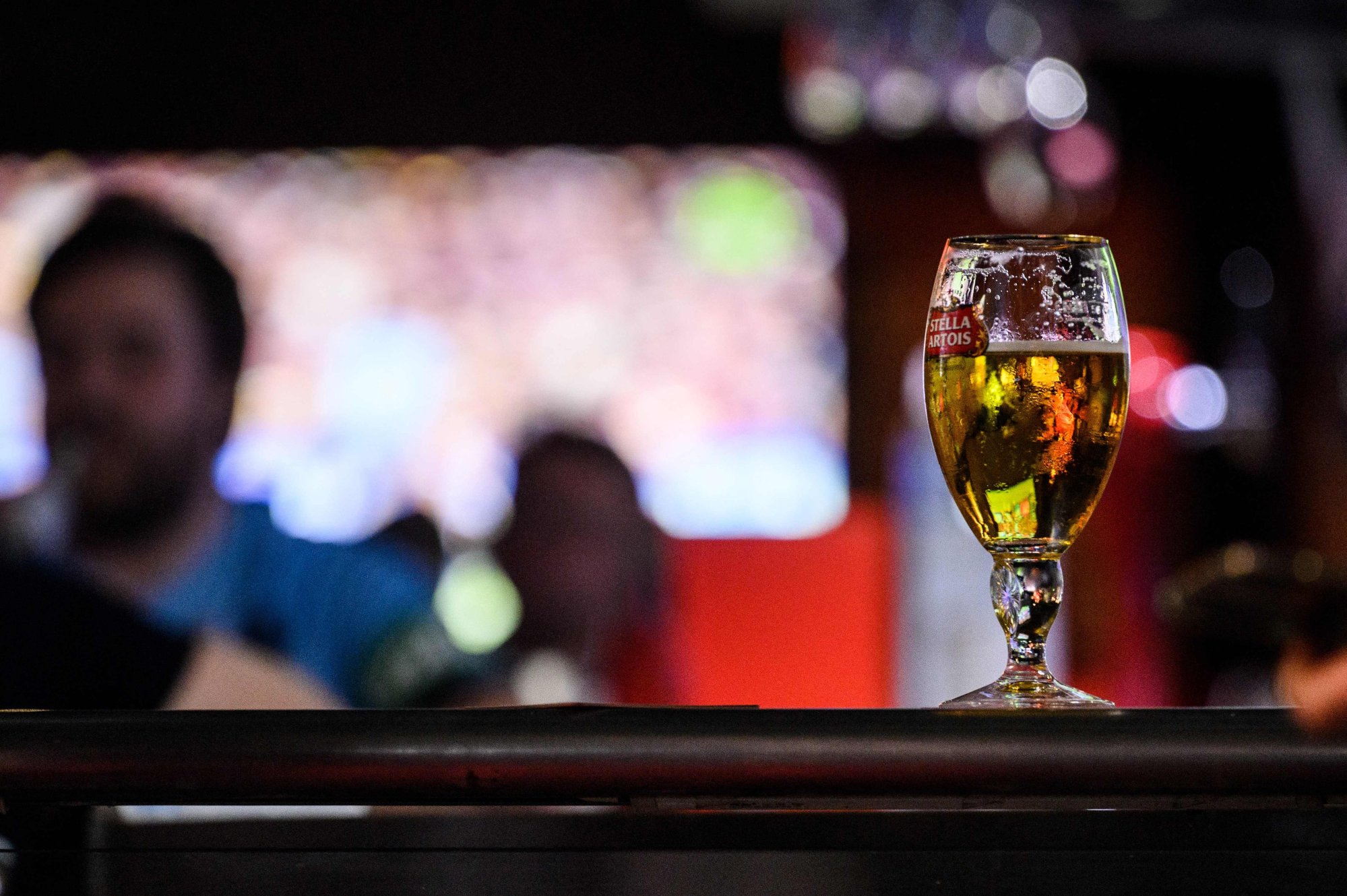
Overweight China and obese America put tubby Hong Kong in a difficult position
- China has caught up with the US on rates of obesity, which exposes a significant risk to the population if Covid-19 gets back in
- Hong Kong is caught between a rock and a hard place in opening up the border: by opting for free movement with China, it can’t open up to foreign travel from elsewhere
Dimon is the latest high-profile visitor allowed to skip the 21-day quarantine, on the basis his visit would benefit Hong Kong’s development.
With mandatory lock-ups in a quarantine hotel, the Hong Kong government has essentially isolated the city from the global business community except for the very elite, and made travel to the territory uncomfortable and expensive.

This is against the backdrop of much of the rest of the world doing the opposite, and deciding that the way forward is to live with the coronavirus and return to a new fist-bumping “normal”. Understandably, Hong Kong’s quarantine regime has drawn substantial criticism from many residents and the foreign community.
However, I wonder if there is something we are overlooking when criticising the tough stance taken by Hong Kong towards international travel as it plans to open borders to China – there is an acute infection risk that opens up to the mainland if Hong Kong also reopened to the West.
What we have learned about Covid-19 over the past two years is that it impacts certain groups of people more than others, for whom symptoms can be worse and the recovery from infection difficult or impossible.
So who gets the worst symptoms?
• Seniors. With the highest risk of developing dangerous symptoms, being 85 or older puts people at serious risk. In the United States, the highest rate of deaths at over 80 per cent has been seen in people aged 65 and above. The risks are inflated when there are other health conditions to worry about. Stroke and dementia also increase the risk of severe symptoms.
• People with pre-existing lung or respiratory issues. Common asthma is a problem, along with serious diseases such as lung cancer or cystic fibrosis, where medications can also reduce the effectiveness of your immune system. Asthma triggers are specific to individuals, but common ones are pollen, dust mites, air pollution and even cold air. Smoking or vaping we know is not good for you, but could make you more susceptible during the pandemic reducing the efficiency of your respiratory system whether you have asthma or not.
• People with heart disease. There are multiple heart issues that fall into this category and according to a 2019 report by the American Heart Association, 48 per cent of Americans had some kind of heart disease, which includes high blood pressure.
• Those who are overweight or obese. The definition of obesity is having a body mass index (BMI) of over 30. If you have a BMI of 25 or over, you are overweight, which makes you a target for Covid-19. To get your BMI, take your weight in kilograms divided by the square of your height in metres. I just pulled the scales out and I need to drop 10kg to get a BMI of below 25, so I’d better go out for a walk today and try to leave carbs alone.
• Cancer patients and those with a weakened immune system, which can be from liver and kidney diseases, are also at greater risk. Non-alcoholic fatty liver disease affects about 25 per cent of Americans, add in the mix alcohol, the risk of turning your liver into foie gras sharply goes up. I’d better knock the booze on the head for a bit, too.

We generally think of the Americans leading the world in being unhealthy, so I have looked at US statistics here. In terms of drinking though, they come second to the Britons who are also fat, and the French beat them at smoking any day. But obesity, drinking and smoking are not things that have escaped Asia, and they are particularly impacting China.
An official report from the Chinese government last year showed over half of the population were overweight. On a percentage basis, that is about the same as the US, but on a numerical basis, it is significantly more at more than half a billion people. The rapid economic growth that China enjoyed has led to major changes in lifestyle, diet and exercise habits that has taken the overweight percentage to 50 per cent – the same as Hong Kong – of whom 16.4 per cent are obese.
The Chinese smoke heavily too, with 26.6 per cent of the population indulging, skewed by gender where 50.5 per cent of Chinese men light up, according to a 2018 survey. By comparison, 29 per cent of French men smoke and 24 per cent of the women join them.
As world’s recovery takes off, closed Hong Kong is poorer than it thinks
As for alcohol, The Lancet medical journal noted in 2019 that although the Chinese were not overall heavy drinkers, they don’t abstain, with 77 per cent of the population liking a tipple versus 74 per cent of the US.
China has played catch-up on being unhealthy as it ages, and joins numerous countries which are introducing policies, particularly targeted at children, to reduce the intake of junk food, increase exercise and lose weight. But pushing adults to do the same is more difficult.
Japan, which also witnessed a girth explosion in its middle-aged adults, tacked the problem by introducing a law in 2008 known as the Metabo Law, where company employees and government workers are measured annually and any bellies bigger than 33.5 inches (85cm) for men and 35.4 inches (90cm) for women need to be put in check or financial penalties are levied on the employer. Consequently, the Japanese are comparatively skinny.

This suggests to me that:
• If Hong Kong opens its borders to China, it cannot open its borders in the same way to the West, given that a strategy of living with the virus is diametrically opposed to a plan of stamping it out. The risk to China of letting Covid-19 back in is too great, and the Hong Kong government will remain between a rock and a hard place, right in the middle.
• Covid-19 mutates and is a step ahead of vaccines. The latest variant, for those that know their Greek alphabet, is Omicron, which has worked its way in from Botswana and now landed in Hong Kong. A new variant in the future could, and very likely will, make a mockery of vaccination rates.
• It’s time we all took a leaf from the Japanese book on heath and go on a global diet if we want to move around freely and healthily again. Despite the country’s early exposure to the virus; its ageing population with 28.2 per cent over 65, versus 16 per cent for the US and 12 per cent for China; and the density of the cities where 93 per cent of the population live with little social distancing measures; there have been comparatively low infections and a death rate that’s about a tenth of the global average. This may be simply that they are far healthier, slimmer and indulge less in life’s pleasures than the rest of us.
Hong Kong, Singapore’s opposite Covid-19 tactics can’t avoid similar outcomes
Approaching Christmas, I look down and I can’t see my feet. My 36-inch waist needs to be 32 inches, and I freely admit I drink too much. Although I don’t smoke, I am in the same group of millions of others popping pills for hypertension, cholesterol and have a complete lack of discipline when asked if I fancy a pint at the bars on the Central ferry piers. In fact, I usually instigate a gathering.
I wonder if amid all the social distancing measure, masks, jabs, alcohol wash, fist bumps and all the rest of the strange things we do these days as a new normal in all the are flung places, we should go on a global diet next year as part of the process of dealing with the virus. And looking at the shape of me, perhaps I should kick it off.


